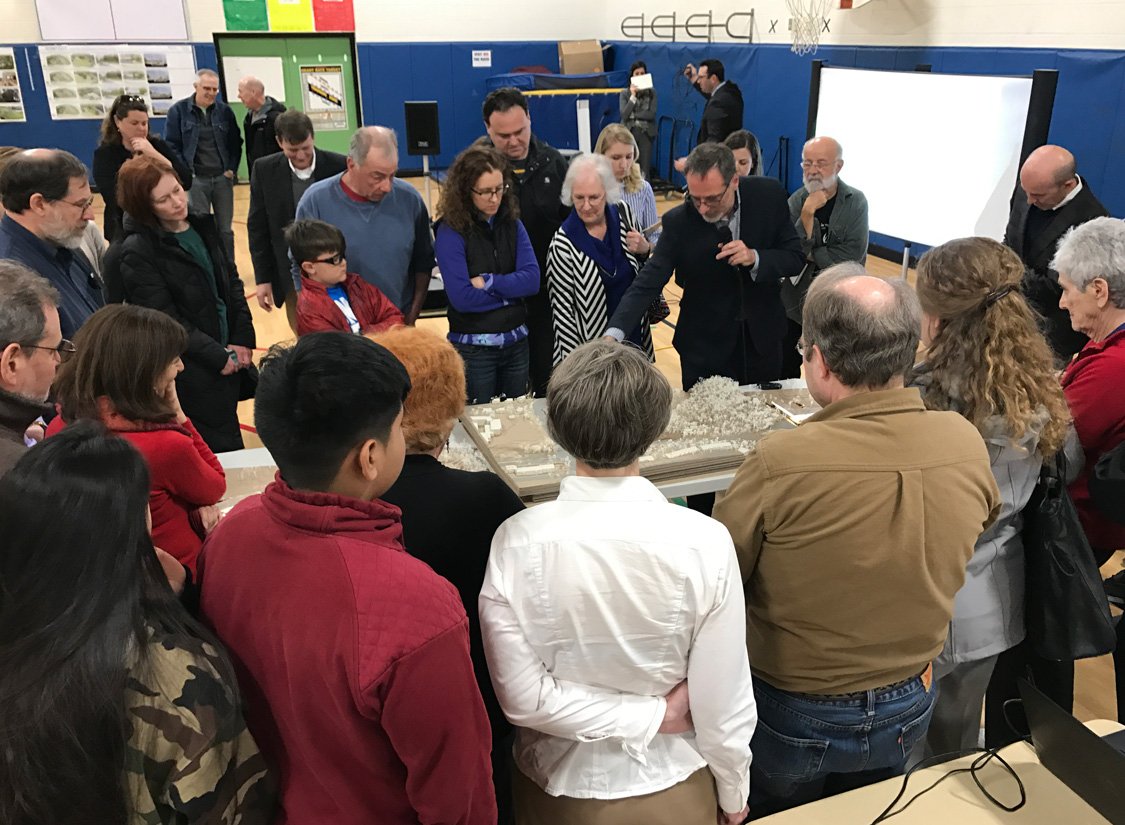Lubber Run
Community Center
Featuring net-zero energy design and a landscape-focused approach to the surrounding park, Lubber Run Community Center offers a holistic response to an urban challenge – ultimately creating public space that is greater and greener for residents.
Client: Arlington County Parks and Recreation
Location: Arlington, VA
Discipline: Community Spaces
Completion: July 2020
Size: 50,000 SF
Awards: AIA National Architecture Award

Located in Lubber Run Park, a precious natural resource in urban Arlington County, Virginia, the Lubber Run Community Center replaces a previous 1950’s-era community building on a tight 4.5-acre site that also includes new outdoor recreation spaces and amenities. Connection to nature and preservation of open space was essential to designing the new building,
and as a result, parking and some programs are located underground to allow for increased outdoor amenities. Through the integration of building and landscape, the Center offers a zero energy response to an urban challenge – ultimately creating a shared public amenity that is greater and greener for residents.
The process of designing the center highlights the importance of authentic community engagement. Robust local partnerships supported solutions for a sustainable, place-based design that integrates interior and exterior public and programmed spaces.
Together, Arlington Parks & Recreation and VMDO developed a context-specific community engagement process involving a series of transparent public workshops that generated community feedback in an effort to promote equity, access, public health, and sustainable design. The team applied an empathetic approach to gathering cross-generational voices that informed the design of numerous blended spaces connected to nature – spaces inside, outside, and thresholds in between, interweaving building and landscape.
Four schemes provided four options for the community to respond to and consider. Instead of picking one scheme to advance, the goal was to take the best aspects of each scheme that the community liked and integrate those into a fifth design for further refinement and feedback. The resulting hybrid solution seeks to blur the distinction between indoors and outdoors and encourage occupants to feel connected to the park landscape around them.
The 50,000 SF replacement structure includes multipurpose rooms for recreation programs for all ages, a fitness center with locker rooms, a gymnasium, a preschool program, community meeting rooms, a kitchen, reception and office space for county wide Parks and Recreation staff.
Outdoor programmed and open recreation spaces will include a playground, volleyball and basketball court, covered gathering space, and improvements to site circulation and streetscape needed to facilitate access to the facility by all modes of transportation.
As a LEED For Communities Platinum winner, Arlington County is a sustainability trailblazer – combining forward-thinking environmental goals into its energy-use standards while also balancing issues around livability, diversity, and increasing development. Building on this commitment to sustainability, Lubber Run Community Center was conceived as a net-zero energy facility. Lubber Run marks Arlington County’s first net-zero energy building, adding to Arlington Public Schools’ three net-zero energy schools, also designed by VMDO.
Site layout, building massing, envelope design, and systems design were driven by the zero energy goal of maximizing the on-site solar array while optimizing the building’s energy performance. Using highly efficient MEP systems, along with a unique Thermawall system, increases the project’s energy performance while decreasing the number of materials. Additionally, trees that were felled during construction were milled and used to clad the primary circulation pathways inside.
“There was lots of community involvement and excitement surrounding the new design and plan. Attention was paid to functionality, energy efficiency, sustainability – and great design. This is truly a community project.”
Jay Fisette
Former Arlington County Board Chair



























